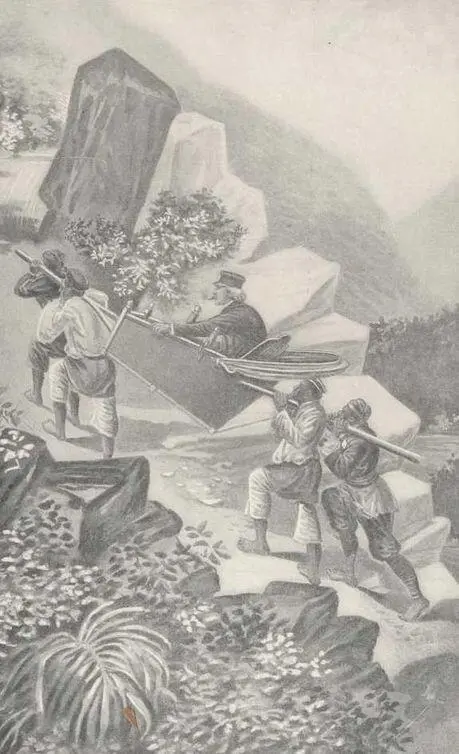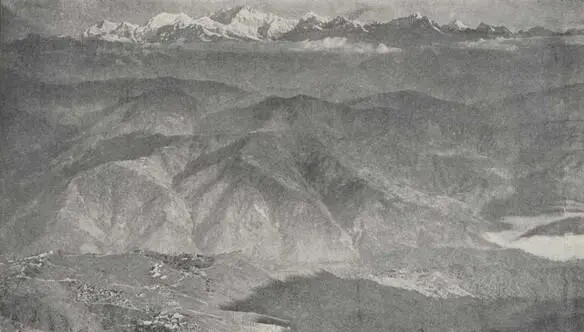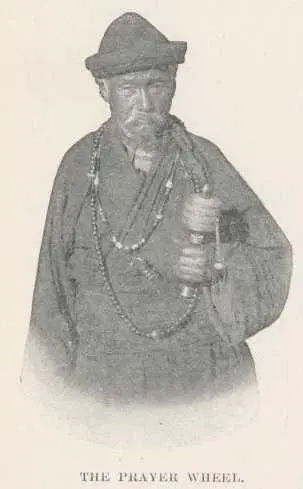Mark Twain - Following the Equator
Здесь есть возможность читать онлайн «Mark Twain - Following the Equator» весь текст электронной книги совершенно бесплатно (целиком полную версию без сокращений). В некоторых случаях можно слушать аудио, скачать через торрент в формате fb2 и присутствует краткое содержание. Год выпуска: 2004, Жанр: Классическая проза, Юмористическая проза, на английском языке. Описание произведения, (предисловие) а так же отзывы посетителей доступны на портале библиотеки ЛибКат.
- Название:Following the Equator
- Автор:
- Жанр:
- Год:2004
- ISBN:нет данных
- Рейтинг книги:3 / 5. Голосов: 1
-
Избранное:Добавить в избранное
- Отзывы:
-
Ваша оценка:
- 60
- 1
- 2
- 3
- 4
- 5
Following the Equator: краткое содержание, описание и аннотация
Предлагаем к чтению аннотацию, описание, краткое содержание или предисловие (зависит от того, что написал сам автор книги «Following the Equator»). Если вы не нашли необходимую информацию о книге — напишите в комментариях, мы постараемся отыскать её.
Following the Equator — читать онлайн бесплатно полную книгу (весь текст) целиком
Ниже представлен текст книги, разбитый по страницам. Система сохранения места последней прочитанной страницы, позволяет с удобством читать онлайн бесплатно книгу «Following the Equator», без необходимости каждый раз заново искать на чём Вы остановились. Поставьте закладку, и сможете в любой момент перейти на страницу, на которой закончили чтение.
Интервал:
Закладка:
"Every prospect pleases,
And only man is vile."
It is because Bavaria and Austria and France have not introduced their civilization to him yet. But Bavaria and Austria and France are on their way. They are coming. They will rescue him; they will refine the vileness out of him.
Some time during the forenoon, approaching the mountains, we changed from the regular train to one composed of little canvas-sheltered cars that skimmed along within a foot of the ground and seemed to be going fifty miles an hour when they were really making about twenty. Each car had seating capacity for half-a-dozen persons; and when the curtains were up one was substantially out of doors, and could see everywhere, and get all the breeze, and be luxuriously comfortable. It was not a pleasure excursion in name only, but in fact.
After a while we stopped at a little wooden coop of a station just within the curtain of the sombre jungle, a place with a deep and dense forest of great trees and scrub and vines all about it. The royal Bengal tiger is in great force there, and is very bold and unconventional. From this lonely little station a message once went to the railway manager in Calcutta: "Tiger eating station-master on front porch; telegraph instructions."
It was there that I had my first tiger hunt. I killed thirteen. We were presently away again, and the train began to climb the mountains. In one place seven wild elephants crossed the track, but two of them got away before I could overtake them. The railway journey up the mountain is forty miles, and it takes eight hours to make it. It is so wild and interesting and exciting and enchanting that it ought to take a week. As for the vegetation, it is a museum. The jungle seemed to contain samples of every rare and curious tree and bush that we had ever seen or heard of. It is from that museum, I think, that the globe must have been supplied with the trees and vines and shrubs that it holds precious.
The road is infinitely and charmingly crooked. It goes winding in and out under lofty cliffs that are smothered in vines and foliage, and around the edges of bottomless chasms; and all the way one glides by files of picturesque natives, some carrying burdens up, others going down from their work in the tea-gardens; and once there was a gaudy wedding procession, all bright tinsel and color, and a bride, comely and girlish, who peeped out from the curtains of her palanquin, exposing her face with that pure delight which the young and happy take in sin for sin's own sake.
By and by we were well up in the region of the clouds, and from that breezy height we looked down and afar over a wonderful picture—the Plains of India, stretching to the horizon, soft and fair, level as a floor, shimmering with heat, mottled with cloud-shadows, and cloven with shining rivers. Immediately below us, and receding down, down, down, toward the valley, was a shaven confusion of hilltops, with ribbony roads and paths squirming and snaking cream-yellow all over them and about them, every curve and twist sharply distinct.
At an elevation of 6,000 feet we entered a thick cloud, and it shut out the world and kept it shut out. We climbed 1,000 feet higher, then began to descend, and presently got down to Darjeeling, which is 6,000 feet above the level of the Plains.
We had passed many a mountain village on the way up, and seen some new kinds of natives, among them many samples of the fighting Ghurkas. They are not large men, but they are strong and resolute. There are no better soldiers among Britain's native troops. And we had passed shoals of their women climbing the forty miles of steep road from the valley to their mountain homes, with tall baskets on their backs hitched to their foreheads by a band, and containing a freightage weighing—I will not say how many hundreds of pounds, for the sum is unbelievable. These were young women, and they strode smartly along under these astonishing burdens with the air of people out for a holiday. I was told that a woman will carry a piano on her back all the way up the mountain; and that more than once a woman had done it. If these were old women I should regard the Ghurkas as no more civilized than the Europeans. At the railway station at Darjeeling you find plenty of cab-substitutes—open coffins, in which you sit, and are then borne on men's shoulders up the steep roads into the town.

Up there we found a fairly comfortable hotel, the property of an indiscriminate and incoherent landlord, who looks after nothing, but leaves everything to his army of Indian servants. No, he does look after the bill—to be just to him—and the tourist cannot do better than follow his example. I was told by a resident that the summit of Kinchinjunga is often hidden in the clouds, and that sometimes a tourist has waited twenty-two days and then been obliged to go away without a sight of it. And yet went not disappointed; for when he got his hotel bill he recognized that he was now seeing the highest thing in the Himalayas. But this is probably a lie.
After lecturing I went to the Club that night, and that was a comfortable place. It is loftily situated, and looks out over a vast spread of scenery; from it you can see where the boundaries of three countries come together, some thirty miles away; Thibet is one of them, Nepaul another, and I think Herzegovina was the other. Apparently, in every town and city in India the gentlemen of the British civil and military service have a club; sometimes it is a palatial one, always it is pleasant and homelike. The hotels are not always as good as they might be, and the stranger who has access to the Club is grateful for his privilege and knows how to value it.
Next day was Sunday. Friends came in the gray dawn with horses, and my party rode away to a distant point where Kinchinjunga and Mount Everest show up best, but I stayed at home for a private view; for it was very cold, and I was not acquainted with the horses, any way. I got a pipe and a few blankets and sat for two hours at the window, and saw the sun drive away the veiling gray and touch up the snow-peaks one after another with pale pink splashes and delicate washes of gold, and finally flood the whole mighty convulsion of snow-mountains with a deluge of rich splendors.
Kinchinjunga's peak was but fitfully visible, but in the between times it was vividly clear against the sky—away up there in the blue dome more than 28,000 feet above sea level—the loftiest land I had ever seen, by 12,000 feet or more. It was 45 miles away. Mount Everest is a thousand feet higher, but it was not a part of that sea of mountains piled up there before me, so I did not see it; but I did not care, because I think that mountains that are as high as that are disagreeable.

I changed from the back to the front of the house and spent the rest of the morning there, watching the swarthy strange tribes flock by from their far homes in the Himalayas. All ages and both sexes were represented, and the breeds were quite new to me, though the costumes of the Thibetans made them look a good deal like Chinamen. The prayer-wheel was a frequent feature. It brought me near to these people, and made them seem kinfolk of mine. Through our preacher we do much of our praying by proxy. We do not whirl him around a stick, as they do, but that is merely a detail.

Интервал:
Закладка:
Похожие книги на «Following the Equator»
Представляем Вашему вниманию похожие книги на «Following the Equator» списком для выбора. Мы отобрали схожую по названию и смыслу литературу в надежде предоставить читателям больше вариантов отыскать новые, интересные, ещё непрочитанные произведения.
Обсуждение, отзывы о книге «Following the Equator» и просто собственные мнения читателей. Оставьте ваши комментарии, напишите, что Вы думаете о произведении, его смысле или главных героях. Укажите что конкретно понравилось, а что нет, и почему Вы так считаете.











